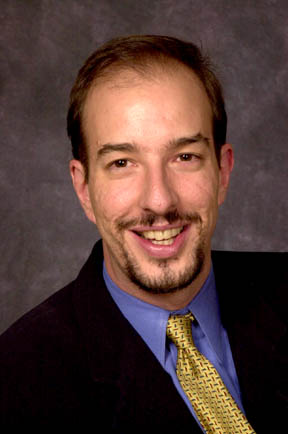|
Web
Exclusives:Features
So much for easing into a new job. Anthony Romero '87 had been executive director of the American Civil Liberties Union for less than a month when terrorists attacked New York and Washington, D.C. Suddenly, issues like government wiretapping authority, racial profiling, and the detention of immigrants moved from the realm of the abstract to the subject of a very real national debate. And the ACLU is taking its usual strong (some say extreme) stands in defense of the Constitution. Romero says the crisis has brought the 81-year-old organization back to its roots. "We've been sounding the note that the U.S. must stay safe and free," he says. "Right now young people will grow up in a new climate of civil liberties and civil rights that is being defined at this moment." Reaching out to teens and twentysomethings was one of Romero's goals when he was appointed to lead the ACLU in May. "It's always hard to reach the younger generation that didn't live through the civil rights movement," says Romero, who earned a law degree from Stanford. It helps that at 36, he's just a few years removed from them. He grew up in the Bronx, and as a high school senior received an invitation to visit Princeton through a minority recruitment program. He went, and was so taken with the school that he canceled visits to other colleges. "I loved the focus on undergraduate teaching and my interests were always in international affairs and human rights," says Romero, who majored in the Woodrow Wilson School and wrote his thesis on immigration to the U.S. by Latin Americans — a topic near to his heart since his parents came to New York from Puerto Rico. The ACLU lured him away from the Ford Foundation, where he had
been director of Human Rights and International Cooperation. Romero's
immediate goals: making sure attempts to catch terrorists don't
lead to a further clampdown on civil liberties and boosting the
group's 300,000-strong membership. Internet applications, he says,
are already on the rise. By Katherine Hobson '94 Katherine Hobson is an associate editor for U.S. News & World Report.
|

 February
27, 2002:
February
27, 2002: